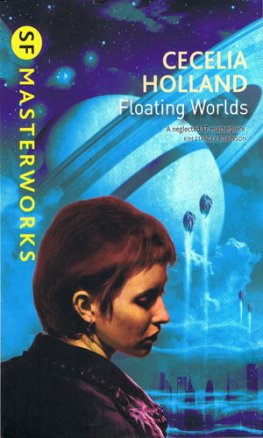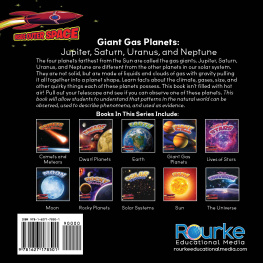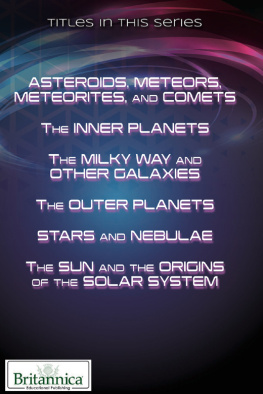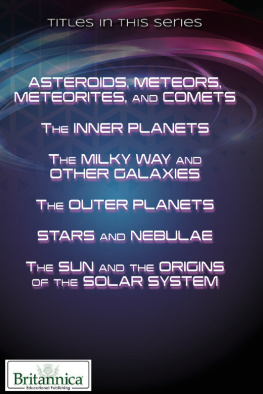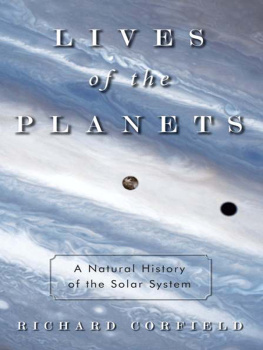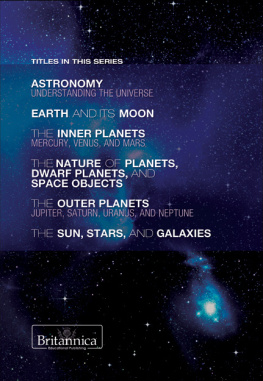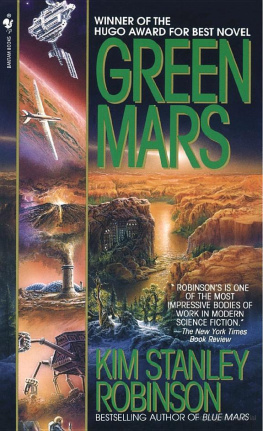Cecelia Holland
FLOATING WORLDS

Science Fiction Masterworks Volume 94
For my sisters,
Deborah and Jennifer,
minds like music,
hearts of glass
THE EARTH
January 1852January 1853
These people were giants, Tony said. He waved up at the towering ruin before them. They built on such a scale, their ideas were so absolute and universal
Paula said, They were Fascists.
You cant have everything.
She scuffed her feet over the pavement, two thousand years old, seamed with moss. She had never been good at history. Down the wide, straight street, a man in a white hat leaned back to take a snapshot of the ruins. Paula went down the steps and turned to look up at the building. On the frieze above the doors stone masks hung, labeled. She tried to make out the lettering. BRA
Havent you ever been here before? Tony said. He came up behind her, his hands in his pants pockets.
Once. When I was little. My mother brought me. We had ice creams afterward. Why was everything so large? She shaded her eyes to see the letters. MANTE. She would have to look it up.
What was it used for?
A museum. A library. Something like that.
She looked around them. Both sides of the street were lined with ruins. Opposite, a wall still stood upright, the windows worn soft and round with age.
I dont like it, she said. Its arrogant.
Youre very provincial.
She grunted at him. They went along the street. Her footsteps rang noisily after her off the ruined walls. The pavement was hard and her legs hurt. Other people strolled around, their heads tilted back.
On the street corner a woman sat painting at an easel. Tony went straight toward her. Paula ambled after him. Opposite the museum, green vines swallowed the last remaining wall of another building. The yellow tongues of sweet Mary reached out to the light. She veered across the pavement and picked one flower and sucked it for the trace of honey. She would have an ice cream on the way home. Voices here traveled far, perhaps the stone carried them; she could hear people talking in the next street. She went up beside Tony.
He stood next to the painter, his face pursed. Amused, she watched him put his head this way and that to see the picture from different angles. He was really a critic, not a writer at all; he knew every pose.
The lighting presents an interesting problem, he said.
The woman wiggled her brush in a muddy cup of water. The domelight changes from day to day. Almost from hour to hour.
Paula looked straight up overhead. The light was diffuse. It fell in pale sheets through the height of the dome, here blue and there definitely more yellow. It was hard to realize that the ocean covered them. Tony was discussing Art with the painter. He sounded knowledgeable but Paula did not understand anything he said. She went across the street. From here she could see through the broken walls to the next row of ruins, and through them to the next, all huge, the biggest buildings she had ever seen. The people who had built this city had dominated the Earth for three centuries, by money, by force, and by guile; they had colonized Mars, reached as far as Uranus, cracked atoms and made whole cities out of polymer, and Manhattan had been the heart of that empire.
You know a lot about art, the woman said to Tony. Do you paint?
He smiled at her. Im a writer. My names Tony Andrea.
Oh, really. They shook hands. She had read his first book. Paula circled behind them to look at the water color. She did not like it. Cramped onto the square paper, the buildings looked small, like broken boxes. She put her hands in her jacket pockets, raising her eyes back to the ruins.
Are you a writer too? the painter said.
Paula shook her head. Im
We havent figured out yet what Paula is, Tony said.
They walked off down the street. A thick tarry slab of the concrete had buckled up the pavement in the middle. The street ran off straight to the shining wall of the dome in the distance, bordered on either side by raised strips of poured stone. Paula stepped up onto the border.
Why is this part higher than the other?
Tony walked along the lower level, beside her. She could see the balding crown of his head. Maybe when he was asleep she would draw an ivy wreath on it. He said, They drove their cars on this part, and the people on foot walked up where you are. Out of the way, see?
They drove their cars on the ground? No wonder the street was so broad. Were they horse-drawn?
They were a little more advanced than that, kitch.
Ahead of them the angle of the light changed. They were coming to the wall of the dome. A jagged shell of a building rose up from the street, hundreds of feet high, catching the light. She put her hand up between her eyes and the dome. Its glass. The domelight shone green as leaves along the edges of the walls. Thats a dumb thing to make a building out of.
Tony laughed. He swung her off the border and down to the street beside him. You really are a narrow-minded little materialist.
Did they live here? In glass buildings? Some fable moved elusively at the edge of her memory.
No. They lived somewhere else and came in here during the day.
Now tell me the truth.
Im sorry, kitch, that is the truth.
She stood looking up at the glass. Maybe in those days glass had been more common than it was now. Waves of stain crossed it, traces of dry dust like tracks from the time when the ruins had been under water.
Atlantis.
Thats a different place entirely, Tony said. Thats in Aegea.
They went on to the port. The covered boat waited in the brackish water of the dock, empty. Paula went down between the benches to the back, next to the steering box. Tony sat down beside her.
The doctor says he wont do the operation unless you sign a paper saying you know I can get you pregnant.
What?
I know its ridiculous, but hes an old bastard, he says hes tired of naturalizing the men and then six months later sucking out the women.
Paula leaned on the wall of the steering box, looking in at the controls. Its not up to him. The long handle coming from the floor was probably the brake. She was surprised that having a baby would be so complicated. The boat rocked; people crowded on board.
Are you having dinner with me tonight? she asked.
I have to work, Tony said. Ive been with you all day.
He was writing a metaphysical novel, of which she had already read three drafts. He was endlessly inventive without being especially creative, which made his books easy to read. He told her how he was changing Chapter Three, where the hero murdered his wife. She wondered if he had made up the doctors demand. Maybe he did not want a baby after all. The painter was maneuvering her easel through the door into the boat. Behind her the boatman came in and pulled up the ramp. He got into the steering box beside Paula.
Hang on, we may bump going through the locks.
The deck shuddered under Paulas feet. She heard the rumble of an engine. She turned to the window. The rubberized walls of the lock closed around the boat and slipped with a wet slick plop past the window. The interior lights came on, making everything white. The boat rose straight up. Outside the window the ocean was lit dark green from the dome wall they were passing. So close to New York, the sea was filthy. Flakes of garbage floated around the window. There was supposed to be an ancient dump here someplace, still leaking after hundreds of years. Tony was talking to the boatman about nautical design. The water outside the boat filled slowly with sunshine. She pressed her cheek against the clammy plastic of the window. Half a mile below, the Manhattan dome glowed like a moon in the ocean.

